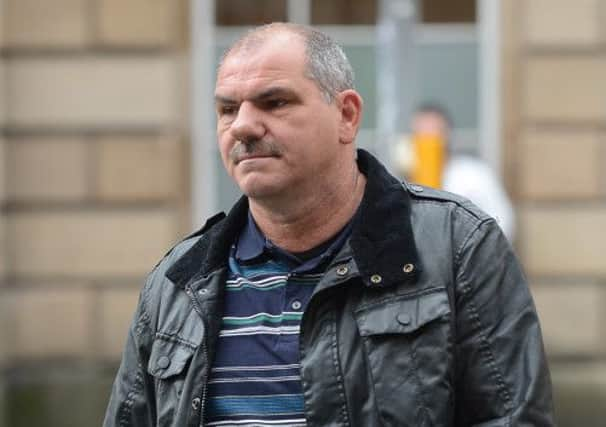Cyclist killer Gary McCourt’s sentence upheld


Solicitor General Lesley Thomson had sought the review after Gary McCourt was sentenced to 300 hours of community service following his conviction for causing the death of Audrey Fyfe by driving carelessly.
The 75-year-old died two days after McCourt clipped the back wheel of her bike in Edinburgh two years ago.
Advertisement
Hide AdAdvertisement
Hide AdMcCourt, 49, who was also banned from driving for five years, had been jailed for two years after being convicted in 1986 of causing another cyclist’s death by reckless driving, it emerged at the end of his trial.
George Dalgity, 22, was killed as he cycled along Regent Road in Edinburgh in 1985.
Mrs Fyfe’s daughter Aileen Brown expressed disbelief at the appeal ruling.
She said: “The decision to allow Gary McCourt and drivers like him to drive again suggests that the judiciary are frightened to grasp the nettle and make decisions which would make our country a safer place to live.”
Alison Johnstone, chair of Holyrood’s cross-party cycling group and a Lothian Green MSP, called for a review of sentencing guidelines for such serious offences.
She said: “Today’s deeply worrying judgement only reinforces the feeling that our justice system is not on the side of the most vulnerable on our roads.
“There is widespread agreement that a man who has killed two cyclists is being let off lightly, and at the very least should receive a lifetime driving ban.”
In today’s written opinion, Lord Menzies, who had sat with Lady Smith and Lord Bracadale, refused the appeal.
Advertisement
Hide AdAdvertisement
Hide AdThe opinion agreed with the trial sheriff “that Mrs Fyfe was not at all to blame for anything”.
It said: “However, in all the circumstances, we cannot disagree with the sheriff’s categorisation of this as a momentary inattention, the result of which was a low impact, low speed collision with Mrs Fyfe’s cycle.
“Despite the sheriff’s error in treating the fact that Mrs Fyfe was not wearing a cycle helmet as a mitigatory factor, we are unable to say that the sentence of a community payback order with the maximum number of unpaid hours was unduly lenient.”
Addressing the length of McCourt’s driving ban, the judges said: “Notwithstanding the previous conviction in 1986, we are unable to agree with the Solicitor General’s submission that this is inadequate to provide sufficient protection to the public.
“For these reasons this appeal must be refused.”
Speaking outside court, McCourt’s solicitor Robert Fairbairn said: “It may have been the case, I only say may have been the case, that the Crown succumbed to external pressures from the cycling lobby to bring this appeal.
“Mr McCourt simply was relieved that this issue, which quite clearly has been hanging over his head for a considerable period of time, is now at an end, and he just wishes to get on with the rest his life.
“All along, Mr McCourt has expressed genuine remorse, and the appeal court has considered that he has done throughout.”
Mrs Fyfe’s family had hoped the appeal court would impose a lifetime driving ban.
Ms Brown said: “I was devastated at the original decision.
Advertisement
Hide AdAdvertisement
Hide Ad“I just can’t believe that having got as far as the appeal, and the appeal judges admitting that mum’s not wearing a helmet was of no consequence, that this driver is still going to be back on our roads in five years’ time.
“We won’t get mum back. We’ve been sentenced to a life without mum.”
Mrs Fyfe’s widower Ian said he was “disgusted”.
“I can’t believe it. It sends out the wrong message to others that the judiciary is not fit for purpose.
“It certainly wouldn’t encourage me to get others to contemplate cycling when I see the attitude of the judges.
“I felt he should definitely have been prevented from driving in the future.”
Cycling charity CTC said it was “extremely disappointed” with the decision.
A statement said: “Whilst it might be considered a success to have persuaded the Crown to lodge an appeal against the original sentence, the fact is that someone who has now killed two vulnerable road users with a motor vehicle will be allowed to resume driving in a relatively short time whilst the families and friends of those killed have been permanently affected by his criminal conduct.”